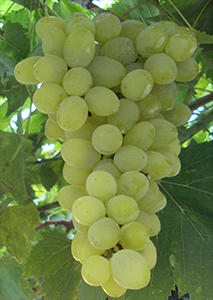 DELIVERY FROM £4.95
DELIVERY FROM £4.95 FREE DELIVERY FOR ORDERS OVER £100
FREE DELIVERY FOR ORDERS OVER £100Home » Community » Wine and Grape Guide » Ucelut

The Ucelut grape is an ancient, native white grape variety of Friuli Venezia Giulia, in north-eastern Italy, renowned for its winemaking traditions and unique indigenous vines. Like many small, historic Italian grape varieties, the exact origins of Ucelut remain uncertain, passed down more through local cultivation and tradition than through documented records.
Ucelut belongs to the family of so-called "uccellini" grapes, literally meaning “little birds.” This name comes from the grape’s natural tendency to grow spontaneously along the edges of woodlands, where wild vines were once a common sight and where the fruit was particularly loved by birds. For centuries, the Ucelut vine was widely cultivated throughout Friuli, contributing to the region’s diverse wine culture. Today, however, its presence has dramatically declined, surviving thanks to a few passionate growers in Castelnovo del Friuli and Pinzano al Tagliamento, both located in the province of Pordenone.
From an ampelographic perspective, the Ucelut grape is distinctive. The berries are medium to large in size, round and regular in shape, with a thick, golden-yellow skin covered by a natural waxy bloom. The clusters are typically medium to large as well, compact, and shaped like a truncated pyramid, often with short wings. The vine itself adapts best to clayey and stony soils, reflecting the rugged terroir of the Friulian hills.
Wines produced from Ucelut grapes are rare, pale yellow in colour, ranging from delicate to more intense shades, always clear and bright with excellent transparency. On the nose, it expresses a fresh, elegant bouquet with fruity and floral aromas, recalling wildflowers and acacia blossoms. The palate is equally refined: balanced and harmonious, with a full-bodied yet soft and velvety texture. A distinctive almond-like aftertaste lingers pleasantly, adding to its charm and making it an excellent pairing with traditional Friulian cuisine, light appetisers, seafood dishes, or delicate cheeses.



Please enter either your username or email address.
(Please check your spam folder)
Before we say ciao, why not join our newsletter & stay up to date on everything happening on planet Italyabroad.com